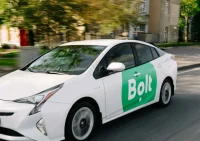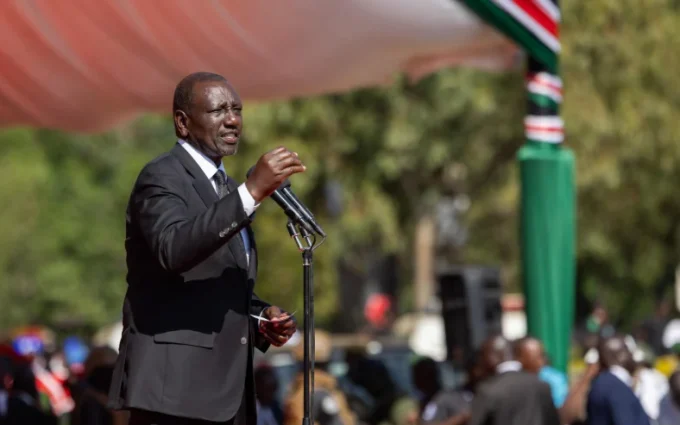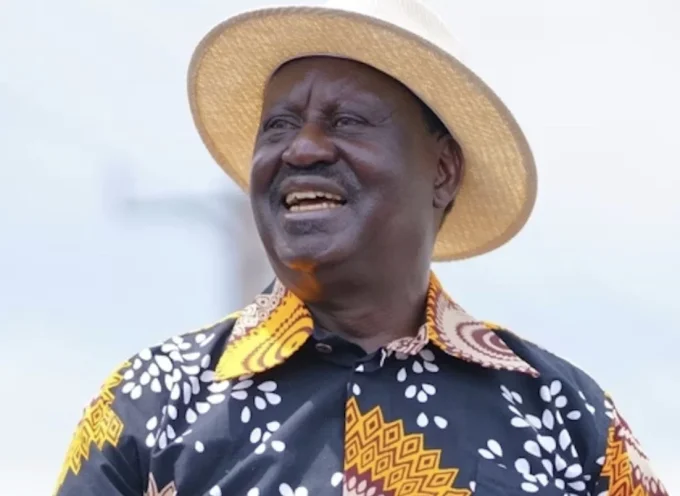Royal Media Services (RMS) owner SK Macharia’s close relationship with Orange Democratic Movement (ODM) leader Raila Odinga has been on full display in recent months, catching the attention of a section of Kenyans.
Macharia on Thursday, December 9 accompanied Raila to Moi International Sports Complex (MISC) Kasarani to inspect preparations for the Azimio la Umoja event. A day later, he was one of the earliest dignitaries to arrive at the stadium as thousands of the former Prime Minister’s supporters thronged the venue where he is expected to launch his 2022 Presidential bid.
Macharia’s media platforms including Citizen TV will provide extensive live coverage of the Azimio la Umoja event, as it has for other events involving Raila such as his initial meeting with the Mount Kenya Foundation (MKF) – a group of billionaires from Central Kenya who fund Presidential candidates as a matter of routine.
In past elections, Macharia has noticeably taken a different political stance from most of his peers in the Mt. Kenya elite by supporting the ODM leader. The Council of Eminent Persons which includes business leaders from Murang’a County and the Mount Kenya Foundation, both of which he is a part of, supported Raila’s rival-turned-ally President Uhuru Kenyatta in 2013 and 2017, and former President Mwai Kibaki against Raila in 2007.
Their friendship traces back to Macharia’s support for the ODM leader’s father, Kenya’s first Vice-President Jaramogi Oginga Odinga.
READ>>MKF: Who are the Billionaire Power Brokers Meeting Raila?
Macharia was among Kenyan students who traveled to the United States as part of the Kennedy airlifts. He was in the 1962 group.
At a political meeting with Raila in attendance, Macharia revealed that Jaramogi as Vice-President invited them to work for the Government of Kenya upon completion of their studies.
In 1969, he returned to Kenya and was employed as a Provincial Local Government Finance Officer (Supernumerary) in the Ministry of Local Government and later worked with Industrial and Commercial Development Corporation (ICDC) and Kenya Industrial Estates (KIE). It was during his time in the government that his respect and admiration for Jaramogi grew as they developed a friendship.
By 1992, Macharia had ventured into the private sector and was running a tissue paper manufacturing firm. Kenya was in the throes of the struggle for multi-party democracy. He supported Jaramogi’s Presidential bid against former President Daniel Arap Moi, Mwai Kibaki and Kenneth Matiba.
Jaramogi would send his son, Raila, to pick up donations from Macharia and it was during these meetings that they first interacted.
“I had founded a tissue paper factory – Raila can tell you if I used to give him money or not. I knew Raila when he was his father’s servant,” Macharia once stated.
Macharia also sought to support Jaramogi’s campaigns by buying advertising on state-owned Kenya Broadcasting Corporation (KBC), but the station failed to air any of the commercials. He therefore decided to apply for his own license and start his own TV and radio stations but faced challenges as the establishment fought him at every turn.
He also faced political backlash from a section of his community and its leaders for supporting a perceived ‘outsider’, a feeling he would get used to over the years.
“We built the station (Citizen) because of his (Raila’s) father. In 1992, KBC did not air even one commercial I paid for Jaramogi. I almost died when he lost the election for I believed he could never lose.”
“I walked to KBC and told them I wanted a license. I applied for one, to broadcast my own TV and radio. We did not know how to do it (broadcast). However, we fought for four years in court until I was given my license,” Macharia disclosed.
Citizen TV and Radio Citizen were shut down at least twice reportedly on orders from above. Once, it was shut down in December 2000 for airing a New Years Eve party at Kunste Hotel while President Moi hosted the annual party at State House Nakuru.
Moi reportedly received distorted information that Macharia had set up a parallel ‘State House’ at Kunste complete with its own live TV event to challenge him. The station was shut down resulting in pressure from leaders, press freedom campaigners and activists.
Pro-democracy campaigners at the time including Meru Governor Kiraitu Murungi and Raila backed Macharia in his quest. Raila backed former President Mwai Kibaki whose NARC coalition swept to power in 2002, removing KANU from power after 24 years of the Moi era.
The Kibaki era saw liberalization of the media with a large expansion of the space. RMS witnessed accelerated growth with its mass market strategy. While Radio Citizen was later reopened, Citizen TV remained closed until 2006 when it was officially relaunched.
Today, RMS is home to some of Kenya’s most watched and listened to media brands including Citizen TV and Radio Citizen, as well as several vernacular stations and digital streaming platform Viusasa.
After four failed bids, often in disputed circumstances, Raila is expected to make a fifth stab at the presidency in 2022. He has switched up his firebrand politician playbook and now has his old foes, the establishment and the elite, on his side. Whether its enough to get him to State House, only time will tell. But his friendship with Macharia looks like it still has several chapters yet to be written.

![ODM leader Raila Odinga (l) with RMS owner SK Macharia at a thanksgiving concert hosted at his Murang'a home on July 27, 2021 following the increase of artists' share of Skiza revenues. [Photo/ Courtesy]](https://businesstoday.co.ke/wp-content/uploads/2021/12/Ne_ktkpTURBXy8wNzNmNjJhMDEyYmRjN2M1NDAwNDY5MTFlNjlmYmMwYi5qcGeSlQMAJM0E0M0CtZMFzQKAzQFA.jpg)











Leave a comment